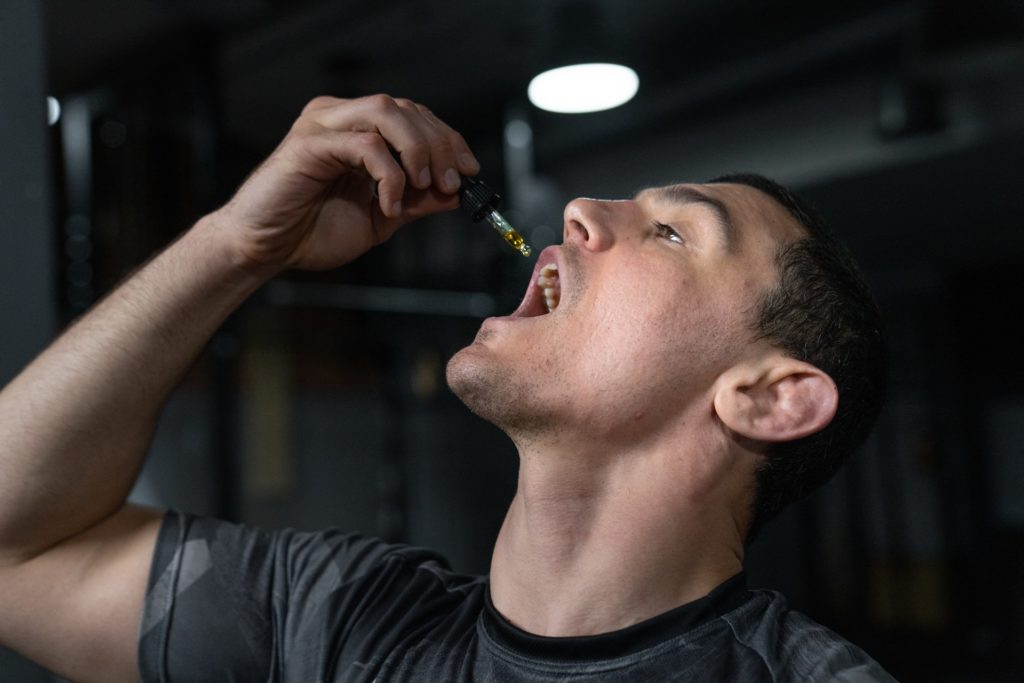Despite strict constraints on the cultivation of plants, the United Kingdom is now the world’s second-largest CBD market. Largely driven by shifting lifestyles during the pandemic, the legal cannabis market, with its CBD products supposed to improve well-being, is booming. However, despite this, UK producers are still unable to cultivate the plant, even though importation of the oil is legal.
The CBD Market Is Exploding… Without Producers


Known for its relaxing effects and for combating stress, CBD (cannabidiol) is one of the active ingredients of non-psychotropic cannabis. And it is in fashion all over the UK, seeing the CBD market explode, despite questions about its effectiveness and long-failed regulations. It is most often sold in the form of extracts or oil.
“There has been a real change in opinion,” believes Joe Oliver, co-founder, and boss of LDN CBD. Like a myriad of companies, his brand embarked on the adventure in 2018 in London, and is now planning a crowdfunding campaign. However, growing plants remains an obstacle course.
Outside of London, there are new developments taking place in the CBD market, too, all of which you can keep up to date with using our free cannabis news app.
Destruction of flowers is mandatory
If it is possible to grow hemp or cannabis, the law requires the destruction of flowers or buds, the noblest parts which also the harbor of the psychoactive substance THC. This regulation is reminiscent of the French situation, where the exploitation of flowers is now prohibited, even if the CBD market is now becoming legal.
For CBD manufacturers, the only choice is to import the oil from the United States and Europe. “It is difficult to understand, especially in a post-Brexit era, why it is legal to import CBD and prohibited to produce it,” said Louise Motala, manager of Bridge Farm, a farm located in Lincolnshire (est from England), which has a license to grow cannabis, but cannot, therefore, sell it into the CBD market.
Despite these challenges, professionals such as Joe Oliver are amazed at how far they have come in a few years for a plant that has not always had a good press: “I have seen the lives of thousands of people change. I remember the days when all types of cannabis were completely banned. “
A recent regulatory framework for the CBD market
The United Kingdom has recently benefited from a regulatory framework intended to reassure customers about the quality of the products in the CBD market. Until now, some oils may have no trace of CBD, or instead, contain THC.
The food safety agency, the FSA (Food Standards Agency) considers CBD as a “new food”, following in this a decision of the European Union of 2019, and has a say in the marketing of the products. However, she admits on her website that there are unknowns about the effects. Communication and advertising around the products are therefore tightly controlled.
“There is not yet clear proof that CBD works for all the health problems it is supposed to address, except for certain types of epilepsy,” Sagnik Bhattacharyya, professor of psychiatry at King’s, told AFP. College of London.
A CBD market… on the Stock Market
The CBD market is larger than cannabis for therapeutic use, available on prescription for certain pathologies. Recreational cannabis is not permitted. CBD can be found in well-known shops in the UK such as the Boots pharmacy chain or the Holland & Barrett natural product chain.
The sector is expected to generate sales of 690 million pounds (810 million euros) in the UK in 2021, according to the industry association ACI ( Association for the Cannabinoid Industry ). And they could reach 1 billion pounds in 2025, estimated at the beginning of 2020 the British consulting firm Savills, which estimated the number of users at 250,000 in 2018.
As a sign of an opening up of the CBD market, companies specializing in therapeutic cannabis or products derived from cannabis oil may be admitted to the London Stock Exchange.
For CBD for the general public, the UK has “become the second-largest market in the world” behind the United States, says Steve Moore, co-founder of ACI in a report published in May, referring to the “quiet revolution” of the United States. cannabis.
—
(Featured image Add Weed cannabis via Unsplash)
DISCLAIMER: This article was written by a third party contributor and does not reflect the opinion of Hemp.im, its management, staff or its associates. Please review our disclaimer for more information.
This article may include forward-looking statements. These forward-looking statements generally are identified by the words “believe,” “project,” “estimate,” “become,” “plan,” “will,” and similar expressions. These forward-looking statements involve known and unknown risks as well as uncertainties, including those discussed in the following cautionary statements and elsewhere in this article and on this site. Although the Company may believe that its expectations are based on reasonable assumptions, the actual results that the Company may achieve may differ materially from any forward-looking statements, which reflect the opinions of the management of the Company only as of the date hereof. Additionally, please make sure to read these important disclosures.
First published in l’usinenouvelle, a third-party contributor translated and adapted the article from the original. In case of discrepancy, the original will prevail.
Although we made reasonable efforts to provide accurate translations, some parts may be incorrect. Hemp.im assumes no responsibility for errors, omissions or ambiguities in the translations provided on this website. Any person or entity relying on translated content does so at their own risk. Hemp.im is not responsible for losses caused by such reliance on the accuracy or reliability of translated information. If you wish to report an error or inaccuracy in the translation, we encourage you to contact us



Comments are closed for this post.